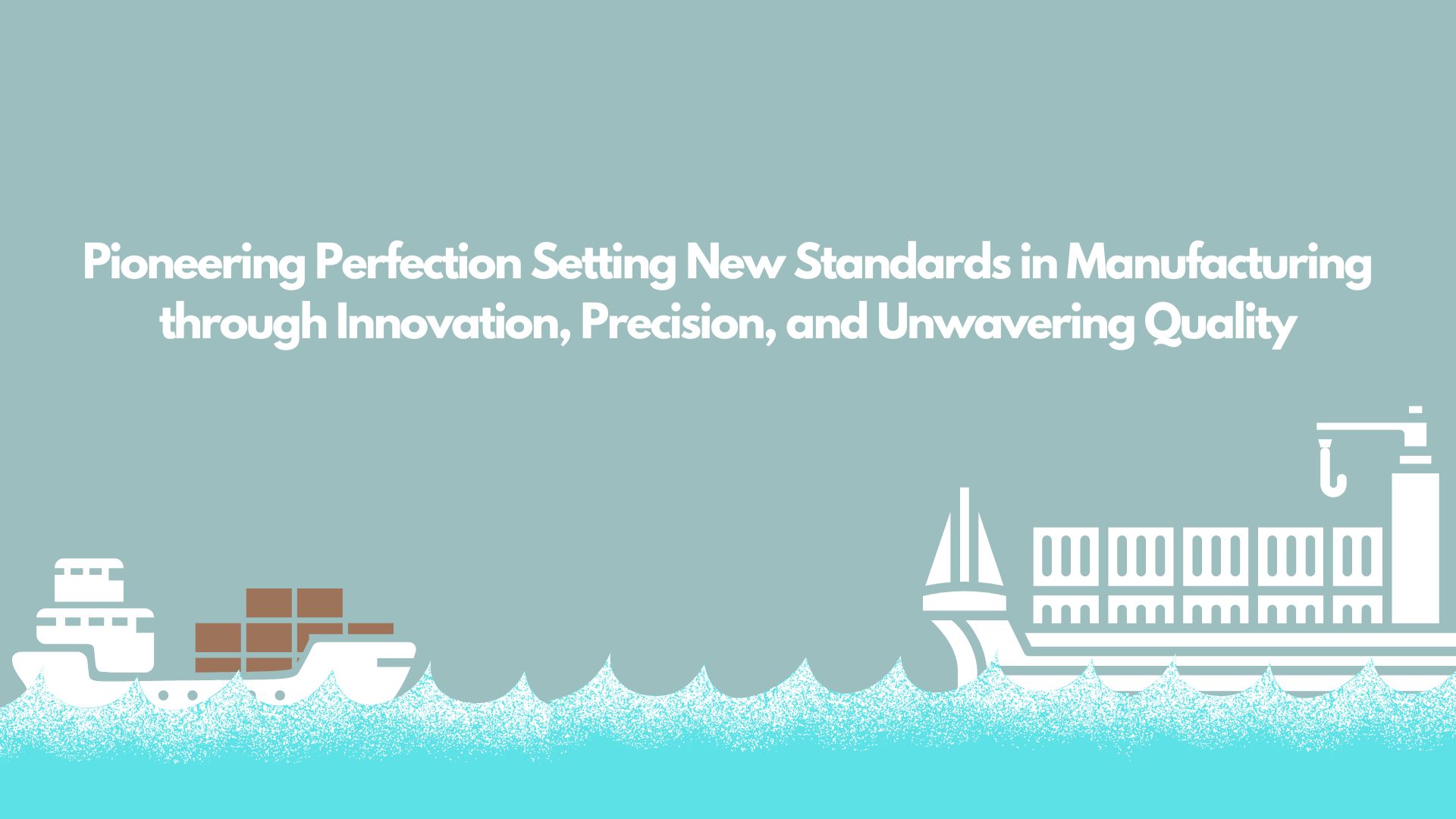In the dynamic world of manufacturing, the pursuit of perfection is a relentless journey. Companies that prioritize innovation, precision, and unwavering quality are at the forefront of this evolution, setting new standards and redefining industry benchmarks. This blog delves into how these core principles drive manufacturing excellence and what it means to pioneer perfection in today’s competitive landscape.
The Power of Innovation
Innovation is the catalyst for transformation in manufacturing. It empowers businesses to explore new possibilities, improve processes, and deliver superior products. Here’s how innovation is revolutionizing the industry:
- Emerging Technologies: Cutting-edge technologies such as artificial intelligence (AI), machine learning, and blockchain are reshaping manufacturing. AI-driven predictive analytics optimize production schedules and maintenance routines, reducing downtime and enhancing productivity. Blockchain ensures transparency and traceability in supply chains, fostering trust and accountability.
- Sustainable Practices: Innovation also drives sustainability. Manufacturers are adopting eco-friendly practices, such as using biodegradable materials, reducing energy consumption, and minimizing waste through recycling and reusing resources. These initiatives not only benefit the environment but also resonate with increasingly eco-conscious consumers.
- Digital Transformation: The digitalization of manufacturing processes, known as Industry 4.0, integrates digital technologies into all aspects of production. This includes the use of digital twins to simulate and optimize processes, IoT sensors for real-time monitoring, and advanced analytics for data-driven decision-making.
Precision: The Hallmark of Excellence
Precision in manufacturing ensures that every product meets exact specifications and performs reliably. It is the bedrock of quality and efficiency. Key elements contributing to precision include:
- Advanced Machining: High-precision machining technologies, such as CNC (Computer Numerical Control) machines, allow for the creation of complex parts with tight tolerances. This ensures consistency and accuracy in production, reducing the need for rework and enhancing product quality.
- Metrology and Quality Control: Metrology, the science of measurement, plays a crucial role in precision manufacturing. Advanced measurement tools and techniques, such as coordinate measuring machines (CMM) and laser scanners, enable manufacturers to verify dimensions and detect deviations from specifications. Rigorous quality control processes ensure that only products meeting the highest standards reach the market.
- Skilled Workforce: Precision is not solely reliant on technology; it also requires a skilled workforce. Highly trained technicians and engineers bring expertise and attention to detail, ensuring that every step of the manufacturing process is executed with meticulous accuracy.
Unwavering Quality: The Foundation of Trust
Quality is the cornerstone of customer satisfaction and brand reputation. Manufacturers committed to unwavering quality go above and beyond to ensure their products exceed expectations. This commitment manifests in several ways:
- Total Quality Management (TQM): TQM is a comprehensive approach that involves every employee in the quest for quality. It focuses on continuous improvement, customer satisfaction, and proactive problem-solving. By fostering a culture of quality, manufacturers can achieve higher levels of excellence.
- Robust Supply Chain Management: Quality extends beyond the factory floor to the entire supply chain. Ensuring that suppliers meet stringent quality standards and collaborating closely with them helps maintain consistency and reliability in the final product.
- Customer Feedback and Continuous Improvement: Listening to customer feedback and continuously improving products and processes are vital to maintaining high-quality standards. Manufacturers that prioritize customer satisfaction are more likely to build long-lasting relationships and loyalty.
Case Studies: Exemplars of Pioneering Perfection
Example 1: Aerospace Industry
The aerospace industry exemplifies the integration of innovation, precision, and quality. Companies like Boeing and Airbus leverage advanced materials, such as carbon composites, and cutting-edge manufacturing techniques to produce aircraft that are lighter, stronger, and more fuel-efficient. Rigorous quality control and precision engineering ensure the safety and reliability of every aircraft.
Example 2: Semiconductor Manufacturing
In semiconductor manufacturing, precision and quality are paramount. Companies like Intel and TSMC push the boundaries of innovation with smaller, more powerful chips. The production of these chips requires nanometer-level precision and flawless quality control to ensure the performance and reliability of electronic devices.
The Future of Manufacturing Excellence
As we look to the future, the pursuit of perfection in manufacturing will continue to evolve. Emerging technologies, a commitment to sustainability, and a focus on customer-centricity will drive the industry forward. Companies that pioneer new standards through innovation, precision, and unwavering quality will not only thrive but also set the benchmarks for others to follow.
Conclusion
Pioneering perfection in manufacturing is an ongoing journey that demands a relentless commitment to innovation, precision, and quality. By embracing these principles, manufacturers can set new standards, deliver exceptional products, and build a reputation for excellence. As the industry evolves, those who lead with these values will shape the future of manufacturing, driving progress and achieving unparalleled success.
In the quest for perfection, there is no finish line—only new horizons to explore and higher standards to achieve.
4o









